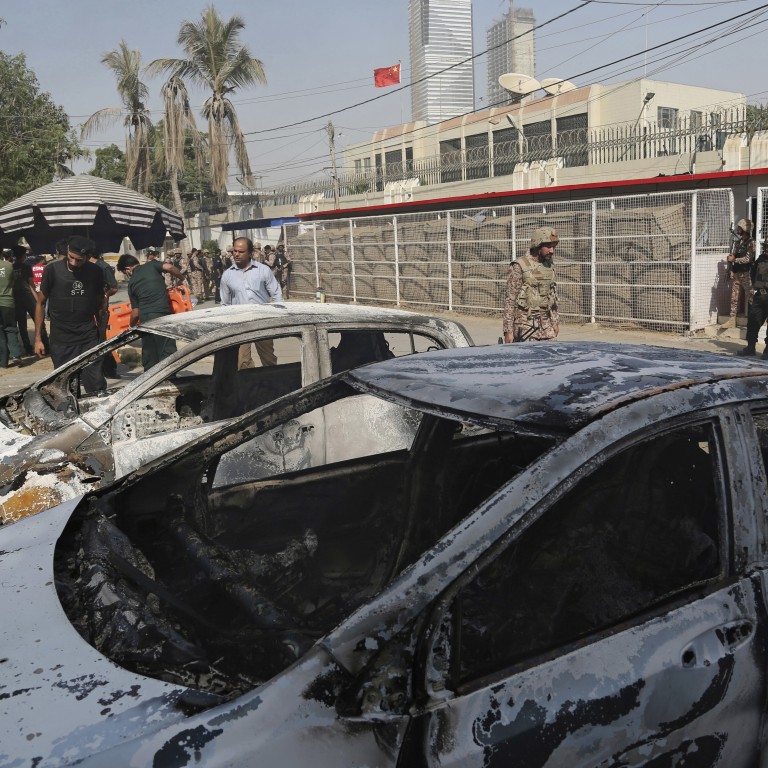
Step up and protect Chinese interests abroad, Xi Jinping tells law enforcers
- President’s call for wider international security net follows warnings of rising offshore risks from terrorists and other countries
China needs to better protect Chinese entities and individuals abroad, President Xi Jinping told a high-level legal affairs meeting on Wednesday.
“We must hasten the establishment of a mechanism to protect the legitimate interests of Chinese organisations and nationals abroad,” Xi said, addressing the annual conference of the Political and Legal Affairs Commission in Beijing.
The commission, which is overseen by the Communist Party’s Central Committee, is responsible for all law enforcement authorities in the country, including the police force.
Xi’s call comes after Pakistani police confirmed on the weekend that a deadly attack on the Chinese consulate in Karachi last year was premeditated. It also follows the arrest and release on bail in Canada last month of Huawei executive Sabrina Meng Wanzhou over alleged violations of US sanctions on Iran.
Analysts said Xi’s remarks might signal greater collaboration between law enforcement organisations in China and overseas as Beijing strives to expand its security network to protect its growing international interests.
China warned to ‘assess and prevent risks’ when pushing belt and road projects
And the risks to those interests appear to be growing as tensions rise with the US and Islamic State and al-Qaeda pose a greater threat, according to a report by Beijing-based risk assessment consultancy Paitron Services and the China Overseas Development Association, a semi-official body under the National Development and Reform Commission.
The report, released on Tuesday, warned that those two factors meant Chinese firms faced greater risks when investing abroad.
In March last year, the California-based Rand Corporation warned that China’s ascent as the world’s second-biggest economy may have brought the country tremendous prosperity, but its integration into the global economy had also exposed more of its citizens and their assets to threats in other countries.
More recently, the detention of Meng in Canada has also raised the alarm among some Chinese businesspeople about the risks of travelling overseas, including the possibility that they could be targeted by law enforcement authorities in other countries, particularly the US.
Chinese ‘will have to manage risks’ as investors pour more cash into Africa
Shanghai-based political analyst Chen Daoyin said Xi’s comments reflected growing anxiety among the Chinese leadership about violence against Chinese nationals and businesses abroad.
“There is a growing need to protect Chinese interests overseas as China expands its presence in other countries and ventures deep into overseas markets. Obviously, China’s ability to protect these interests still lags,” Chen said.
“China might cooperate with other countries in judicial and law enforcement matters in the future,” he said, adding that it would need to improve its practices to avoid creating friction offshore.
Renmin University international relations specialist Wang Yiwei said China needed to strengthen its overseas protection network to better cope with new challenges.
“Beijing has to improve collaboration with foreign governments and NGOs, and make greater use of international law. China is not doing well in these areas now,” Wang said.
In late 2015, China passed an anti-terrorism law that allowed the Chinese military to venture overseas on counterterror operations but observers say Beijing faces big practical and diplomatic hurdles to realise such missions.

